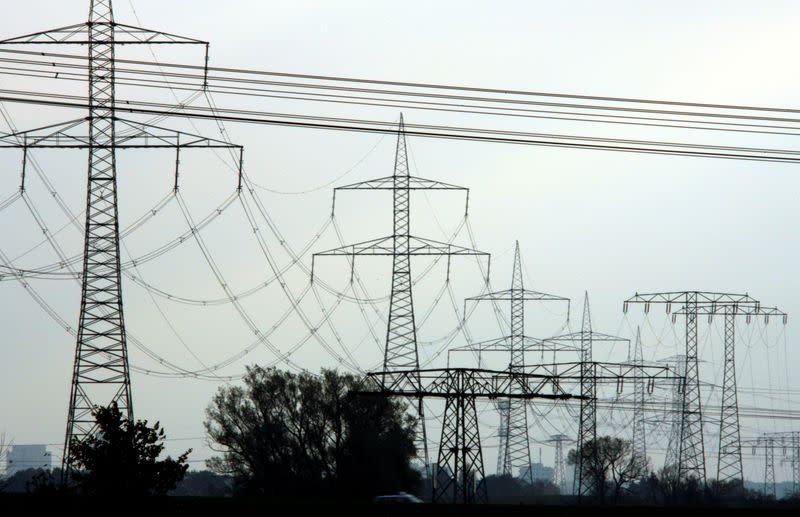German energy regulator expects lower power reserve needs this winter

FRANKFURT (Reuters) - Germany's energy regulator said on Friday it has asked for less reserve power capacity to avoid supply shortfalls in the coming winter than it did last year, citing increased capacities reactivated when Russia stopped gas flows last year.
The Federal Network Agency, called Bundesnetzagentur, said it had cut the amount of winter power capacity needed in reserve for the 2023/24 season by 44% from 2022/23 to 4,616 megawatts (MW).
"This is not a success story... it is merely the consequence of the fact that previous reserve power plants have returned to the market... and thus, in purely arithmetical terms, logically reduce the reserve requirement," it said in a statement.
In last year's energy crisis, a total of 8,500 MW of coal capacity was enlisted to help with shortages until March 31, 2024.
Regardless of that provision, the agency routinely contracts additional capacity for winter months when demand is highest, following recommendations from transmission grid (TSOs) companies that must keep the networks in balance.
Winter risks include overcast and calm conditions, which curb solar and wind electricity output, or when storms trigger wind turbine shutdowns.
Also, the slow pace of network expansion is hampering the delivery of wind power from the north of Germany to the industrial south.
The TSOs can make up to 19,500 MW available to intervene in the market short term in the upcoming winter, which they had estimated as a possible maximum requirement, the Federal Network Agency said in its statement.
That amount of capacity could be raised by combining plants operating regularly in the market with domestic and foreign network reserve capacities and the "winter" reserve, it said.
Under the network reserve schemes, Germany can draw year-round on domestic plants that were registered for closure but declared system-relevant.
These earn fees to cover their overheads and supply power if given notice to do so.
Some power plants abroad will also be contracted under one-off agreements, where a relevant tender runs until May 15.
(Reporting by Vera Eckert, editing by Susan Fenton)

 Yahoo Finance
Yahoo Finance 